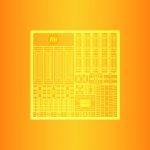Today’s decision of the Alabama Supreme Court in Young Americans for Liberty v. St. John holds that a University of Alabama “free speech zone” policy violates the Alabama Campus Free Speech Act, which generally requires state universities to implement policies (and which is based in some measure on the Goldwater Institute campus free speech proposal):
That the outdoor areas of a campus of a public institution of higher education shall be deemed to be a forum for members of the campus community, and the institution shall not create free speech zones or other designated outdoor areas of the campus in order to limit or prohibit protected expressive activities….
That the public institution of higher education may maintain and enforce constitutional time, place, and manner restrictions for outdoor areas of campus only when they are narrowly tailored to serve a significant institutional interest and when the restrictions employ clear, published, content-neutral, and viewpoint-neutral criteria, and provide for ample alternative means of expression. All restrictions shall allow for members of the university community to spontaneously and contemporaneously assemble and distribute literature….
The majority, in an opinion by Justice Bryan (joined by Justices Bolin, Wise, and Mendheim), concluded:
[T]he general rule under the policy is that students must make reservations for activities that make use of the campus’s outdoor areas. However, reservations are not required for “spontaneous activities of expression” that occur in outdoor areas. But the policy allows such spontaneous speech only in certain designated areas on campus. The policy lists 20 designated areas, spread out over campus, where spontaneous speech is allowed.
We agree with the plaintiffs that the designated areas for spontaneous speech are prohibited “free speech zones” under the Act…. The Act establishes the outdoor areas of campus as an open forum for free speech and unambiguously prohibits the carving out of special free-speech areas on campus. The designated areas for spontaneous speech identified in the policy are plainly free-speech zones under the Act, and the Act prohibits such zones. Accordingly, the policy violates the Act insofar as it establishes designated areas for spontaneous speech, and the circuit court erred in dismissing the plaintiffs’ action….
[T]he defendants failed to establish that the plaintiffs could not possibly prove facts supporting their claim that the policy violates the Act’s provision regarding time, place, and manner restrictions. Specifically, we note that, as a general rule, the policy requires students who want to use outdoor space to speak on campus to reserve the outdoor space. Importantly, this requirement appears to apply to even a single student wishing to speak on campus. This point alone casts serious doubt on whether the requirement is narrowly tailored to serve a significant interest of the University. “Permit schemes and advance notice requirements that potentially apply to small groups are nearly always overly broad and lack narrow tailoring.”
Thus, it is doubtful that the reservation requirement is narrowly tailored, as the Act requires. However, in light of the procedural posture here and the fact-intensive nature of determining whether the reservation requirement is narrowly tailored, we decline to decide whether the plaintiffs at this stage are entitled to prevail on the merits on this issue. Given that this appeal is taken from a judgment of dismissal, the key point is that the plaintiffs could possibly prevail on the merits on this issue. Crucially, there is no evidence in the record establishing that a reservation requirement for speech applying to even a single student is narrowly tailored to serve a significant interest of the University. The defendants, as government officials restricting speech, have the burden of showing that the restrictions are narrowly tailored. In short, this is a factual issue that precludes the dismissal of the plaintiffs’ action, and the circuit court erred by dismissing the action….
Because there are various moving parts in this case, we take this opportunity to briefly provide some further direction to the circuit court going forward. In concluding that the policy violates the Act by creating free-speech zones, we have determined that the plaintiffs are due to at least partially prevail on their claim that the policy violates the Act. That conclusion implicates the defendants’ alternative argument that the Act violates § 264 of the Alabama Constitution, which gives the Board “management and control” over the University. The defendants contend that the Act impermissibly interferes with the power of the Board to manage and control the University.
Because the circuit court concluded that the policy did not violate the Act, the circuit court “decline[d] to reach [the § 264] issue pursuant to the doctrine of constitutional avoidance.” However, on remand, the issue whether the Act violates § 264 is now ripe for the circuit court to consider in the first instance. We decline to decide the constitutionality of the Act at this point in the proceedings….
Justice Shaw generally agreed with this opinion, adding:
With the policy’s exception limiting spontaneous speech to certain areas held to be in violation of § 16-68-3, the remaining portion of the policy providing time, place, and manner restrictions on speech would appear to apply to the University’s entire campus. However, spontaneous speech—by its very nature often entirely unplanned—is not always something for which a person could, in advance, reserve a time and place under the policy. Further, the time, place, and manner policy must “allow for members of the university community to spontaneously and contemporaneously assemble and distribute literature.” § 16-68-3(a)(7). The policy thus cannot be deemed to apply to spontaneous speech. It can, however, apply to speech that is not spontaneous—events, protests, assemblies, etc., that are planned in advance. Factual issues preclude dismissal of the plaintiffs’ claims regarding the viability of this portion of the policy.
Chief Justice Parker concurred in part and concurred in the judgment, writing:
I concur in the main opinion except its analysis of the “free speech zones” aspect of the plaintiffs’ claim. I believe that, at this motion-to-dismiss stage, it is beyond our review to determine the merits of this aspect of the claim. And I agree with the other Justices who point out that the Alabama Campus Free Speech Act (“the Act”), § 16-68-1 et seq., Ala. Code 1975, prohibits “free speech zones” only if they are created “in order to limit” protected speech. In addition, I write to emphasize that the Alabama Constitution’s protection of free speech is incorporated into the Act and that Alabama courts should independently interpret this State constitutional protection…. Alabama courts should prioritize analyzing the meaning of our State constitution. In practice, courts should consider addressing State constitutional issues before determining whether federal constitutional issues must be addressed…. [I] encourage [parties and] legal scholars to explore the original meaning of this free-speech provision as well as the many other protections of rights in the Alabama Constitution; at present, the literature is minimal. In the remainder of this section, I will outline potential avenues for that work….
Justice Sellers, joined by Justice Stewart, likewise concurred in part and concurred in the judgment, writing:
I concur in all parts of the main opinion except to the extent that the opinion mandates a conclusion that, as a matter of statutory interpretation, the free-speech zones created by the policy regulating speech in outdoor areas of the campus of the University of Alabama in Huntsville … violate § 16-68-3(a)(4), Ala. Code 1975. Because I believe the issue whether the free-speech zones are permissible is a fact-intensive one, I concur in the result to reverse the trial court’s judgment with respect to that issue….
And Justice Mitchell concurred in part and concurred in the judgment, writing:
I concur in the main opinion with respect to its treatment of the plaintiffs’ constitutional claims, but I concur only in the result as to its analysis of the plaintiffs’ claims under the Alabama Campus Free Speech Act …. I write separately to explain why I disagree with the main opinion’s statutory analysis.
I also write to emphasize two additional points, which I encourage the trial court and the parties to consider on remand. First, it’s important to clarify the role that “intent” plays in this Court’s constitutional and statutory interpretation. As the briefing in this case illustrates, litigants often seem to assume that a law’s meaning depends on what individual lawmakers subjectively intended the law to mean. That assumption is incorrect. Our federal and state constitutions authorize lawmakers to enact texts, not intentions. In accordance with that principle, the proper aim of judicial interpretation is to discern a law’s objective semantic meaning (sometimes referred to as its manifest intention or as the intent manifested in the law’s language); the subjective views, goals, or desires of individual lawmakers are irrelevant.
Second, I flag an open question related to the defendants’ arguments about Art. XIV, § 264, Ala. Const. 1901. If the trial court decides to order supplemental briefing or oral argument on remand, the parties may wish to address this question. Doing so would likely aid the trial court’s analysis, as well as this Court’s eventual review if another appeal is filed.
The post Challenge to U of Alabama’s “Free Speech Zone” Policy Can Proceed, Under Alabama Campus Free Speech Act appeared first on Reason.com.






